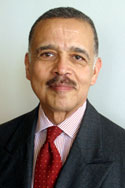ARCHIVES
OF EDITORIALS
April 8, 2004
They don’t count
With the election for president seven months away,
Democrats are beginning to worry about potential votes that might
be lost in key states. Seven states now deny convicted felons
the right to vote after their sentence is completed. Alabama,
Florida, Iowa, Kentucky, Mississippi, Nebraska and Virginia do
not automatically restore convicted felons to the voting rolls.
Only Maine and Vermont permit felons to vote while in prison.
Only 17 states permit felons to vote while they are on parole,
and only 21 permit them to vote while on probation. In addition
to the seven states that disenfranchise all felons who have completed
their sentence, another seven states deny the vote to felons who
have served their sentence if they have been convicted of certain
types of crimes.
The importance of this issue became apparent in the last presidential
election when George Bush won in Florida by only 537 votes and
was thus able to win the election.
While it is impossible to know with accuracy the number of felons
in Florida at the time of the election because people move, it
is estimated that more than 600,000 felons were ineligible to
vote. More than one in four black men in Florida do not have the
right to vote. And as a result of political skullduggery, many
blacks who were otherwise eligible were erroneously removed from
the voting list as convicted felons.
Another study conducted in 1998 found that 3.9 million Americans,
one in fifty adults, was either permanently or temporarily disenfranchised
because of a felony conviction. Almost 40 percent of these, 1.4
million, were African American males. It was estimated that 13
percent of all black men of voters age in the country were disenfranchised
at that time.
Democratic leaders must make a full court press now to restore
the suffrage of convicted felons in those states which deny them
the vote. The ultimate solution to the problem might be a resolution
by Congressman Jesse Jackson, Jr. of Illinois to amend the U.S.
Constitution to grant the right to vote to every citizen over
the age of 18.
While blacks are disproportionately affected by the state disenfranchisement
policies, all felons lose their rights. To be politically effective,
the campaign for enfranchisement of all should include everyone
without consideration of race.
Everybody’s problem
Poverty in America has disproportionately afflicted blacks. According
to the Census Bureau, 22.4 percent of blacks were poor in 2001.
When this percentage is compared with poverty among whites, there
is a clear disparity. Only 9.9 percent of whites are poor.
Rarely do analysts go beyond the percentage data. The raw number
of poor whites and blacks tells another story. In 2001, 22,739,000
whites were classified as poor compared with 8,136,000 blacks.
The number of poor whites is almost three times (2.79) the number
of poor blacks.
It is unacceptable that so many Americans should struggle to survive
below the poverty line. Poverty should not exist in the richest
country in the world. When one views the massive size of this
population, 30,875,000 blacks and whites live in poverty, it is
easy to understand why those in power were petrified by the fear
that these groups would unite in a Poor People’s Crusade.
Jesse Jackson has announced that he plans to pick up Martin Luther
King’s effort and travel to Appalachia to organize the white
poor there. Now that the civil rights laws are on the books, it
is time to develop multiracial political organizations around
economic issues. Eradication of poverty is a good place to start.
Home
Page

